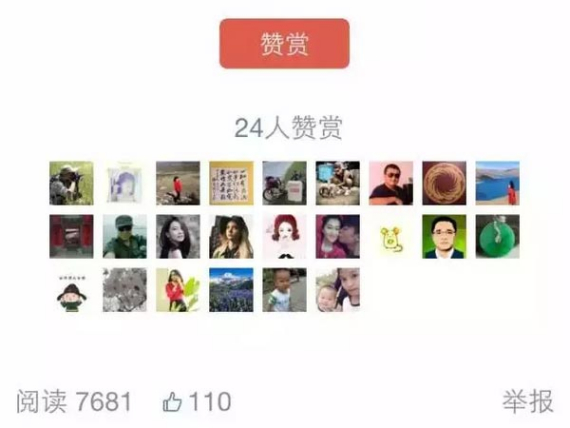
According to a 2014 report issued by EnfoDesk, revenue generated from mobile reading reached 8.84 billion yuan in 2014, and active readers on mobile devices saw an annual increase of 20.9 percent, reaching 590 million by the end of the year. The report estimated that the total revenue of 2017 would reach 15 billion yuan.
Despite such optimism, public account operators' opinions, though, are divided on adopting the pay-for-view function.
Jin Cuodao, a self-made media operator who owns several public accounts, said that he wouldn't give it a try at the moment.
"Our biggest public account has over hundreds of thousands followers, but I don't think our followers would like to see us charging. I don't think our public accounts would use that function."
On the other hand, Li Shaoxiong, who owns a public account that has over 7,000 followers, and an average page view of around 1,000, said that he would consider charging, only in a slightly different way.
"I would set the main body of the article free of charge, instead of the first two hundred words," Li said, adding that "two hundred words might not intrigue the readers' interests so much as to pay for it."
Li said that he wrote over a hundred articles in the past year, and earned 10,000 yuan out of them. Those rewards encourage him to write more and write better.
The upcoming function, while remains to be tested, might not be available to all public accounts just like the "reward" function and "original" tag function.
"I had tried to ask my friend who works in WeChat to grant me the reward function at the very beginning while operating my public account, but I was turned down," said Fan Yi, former employee at a New Oriental School who owns several public accounts.
"They have sorting criteria, which decides what kind of public accounts qualifies the reward function, I think it goes the same with the pay-for-view function," Fan said.
The biggest problem worrying some media critics, however, is the problem of copyright protection.
"A reader might copy paste your article to post it free somewhere else, we can't do nothing about it," said Qiao.
"It is good to reward the original, professional and valuable information, but copyright problem still poses a big challenge for the authors," he said.


















































